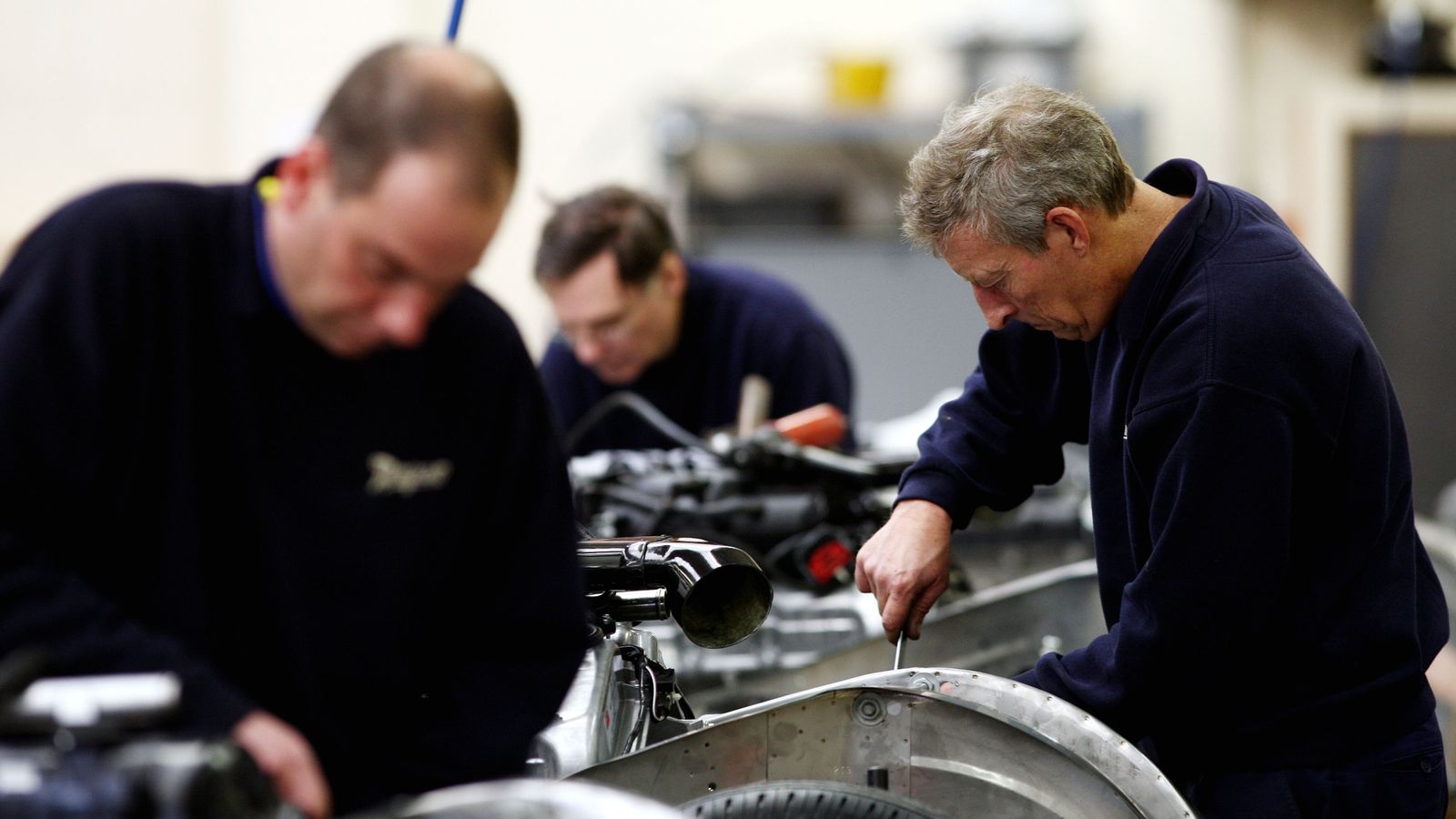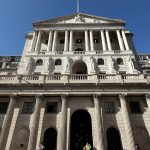Confidence of company bosses in the UK economy “fell off a cliff” in recent weeks amid uncertainty and rising costs, according to a survey.
The Institute of Directors (IoD) said that from a high in the summer, its measure of how directors feel about the financial outlook had tumbled back to levels last seen in February, at the height of the third lockdown.
Three out of four of 635 directors surveyed said they expect their costs to be higher in the next 12 months compared with the last year.
Latest COVID updates from the UK and around the world
Please use Chrome browser for a more accessible video player
The IoD said this had been fuelled by the government’s decision to break its tax pledge and increase national insurance contributions of both workers and employers to fund health and social care.
Businesses point out this will act as a drag on hiring staff just as the coronavirus furlough support scheme stops.
Kitty Ussher, chief economist at the IoD, said the business environment has deteriorated “dramatically” in recent weeks.
COVID-19: India retaliates to UK travel curbs by requiring coronavirus tests and quarantine for Britons
COVID-19: Wetherspoons suffers record loss as counts cost of lockdowns
COVID-19: England’s R number rises slightly to between 0.8 and 1.1
She said: “Following a period of optimism in the early summer, people running small and medium-sized businesses across the UK are now far less certain about the overall economic situation, and the IoD Directors’ Economic Confidence Index fell off a cliff in September.
“A higher proportion of our members expect costs to rise in the next year than expect revenues to rise.
“This is not helped by the government’s recent decision to raise employers’ national insurance contributions, which acts as a disincentive to hire just when the furlough scheme is ending.”
Please use Chrome browser for a more accessible video player
It came as separate figures showed growth of the UK’s manufacturing sector slowed last month on the back of material and staff shortages.
The closely watched IHS Markit/CIPS Purchasing Managers’ Index (PMI) returned a reading of 57.1 for September, down from 60.3 in August.
While a reading above 50 indicates growth, it represented the weakest performance since February and the fourth consecutive month of decline.
However, it was slightly ahead of expectations as economists had predicted a reading of 56.3 for the month.
Rob Dobson, director at IHS Markit, said the figures highlighted the “risk of the UK descending towards a bout of stagflation”, as growth in output and new orders sharply eases while costs and selling prices soar.
Meanwhile, the online white goods retailer AO World saw its shares plummet as it warned the group’s growth was being hit by the nationwide shortage of delivery drivers and ongoing disruption in the global supply chain.
The company had enjoyed a strong period during the pandemic as shoppers turned to online retailers for goods.
:: Listen and subscribe to The Ian King Business Podcast here.
AO said: “Whilst we continue to see industry-wide issues relating to ongoing supply chain disruption, we have implemented measures to help mitigate these challenges in our logistics operations.”
Convenience food manufacturer Greencore, which makes sandwiches for the likes of Marks & Spencer, also referred in a trading update to the persisting supply chain and labour challenges across the UK food industry.
The government has introduced 5,000 temporary visas for more HGV drivers with a large backlog of people looking to take lorry driving tests, but many businesses say more needs to be done.






















